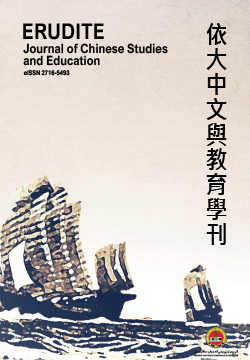譬喻法在王阳明道德教育中的运用
The Application of Metaphors in Wang Yangming’s Moral Education
DOI:
https://doi.org/10.37134/erudite.vol2.1.7.2021Keywords:
王阳明, 譬喻, 道德教育, 方法论Abstract
王阳明对譬喻法的运用是中国传统教育中启发式教育艺术的精华。他关于道德教育的理念主要涵盖三个原则:“立志”原则、“知行合一”原则和“心性启悟”原则,对此,他运用了大量的比喻加以形象化地说明,使道德信念的传达贴合生活实际、易于鼓舞人心。分析王阳明教学法中的譬喻,不仅有助于理解其道德哲学理论,也对当代道德教育的方法论有启示意义。
Wang Yangming's application of metaphors is a representative of the art of traditional Chinese heuristic education. His concept of moral education mainly includes three principles: the principle of “determination of the mind”, the principle of “unity of knowledge and action” and the principle of “mindfulness enlightenment”. He uses lots of metaphors to illustrate them, making the transmission of moral beliefs vivid and inspiring. Analyzing the metaphors in Wang Yangming's moral teaching not only helps to understand his moral philosophy, but also helps to provide a reference for the methodology of contemporary moral education.
Keywords: Wang Yangming, Metaphors, Moral Education, Methodology
Downloads
References
【征引文献】
一、 论著
王守仁,《王阳明全集》,上海:上海古籍出版社,2011。
朱熹,《四书集注》,北京:中华书局,1983。
孙怡让,《墨子间诂》,北京:中华书局,2001。
李山译注,《管子》,北京:中华书局,2009。
吴楚材,《古文观止》,北京:中华书局,2013。
杨伯峻,《孟子译注》,北京:中华书局,1988。
二、 学位论文与期刊论文
王进,《王阳明良知“日喻”的哲学美学意蕴》,武汉大学博士学位论文,2010。
张涵韵,<从“譬喻”修辞看孔子启发式教育的话语方式>,《文教资料》第23期(2012年),页98-99。
龚邓杰,《明儒王阳明童蒙教育思想之研究》,华梵大学硕士学位论文,2011。





